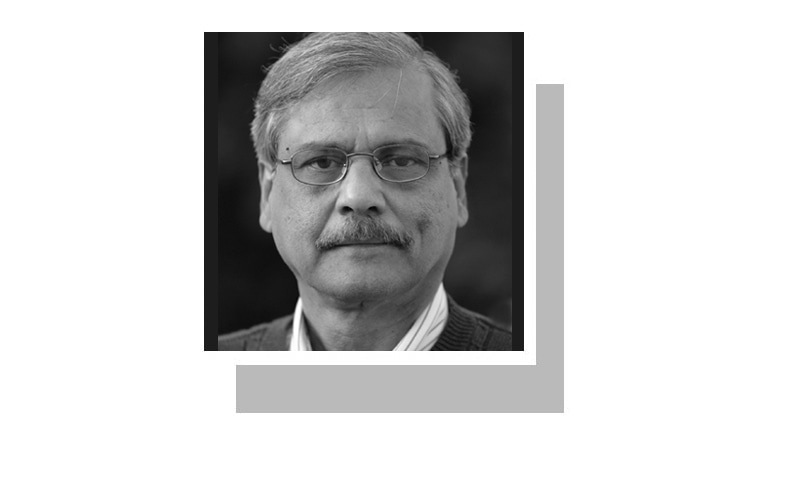IF the exit polls are to be believed, Narendra Modi appears headed to return to power for another five-year term. Defying the pre-poll forecast, the right-wing BJP-lead coalition is expected to win a comfortable majority, riding on the wave of Hindu nationalism and aggressive national security slogans.
Described as the most divisive and most powerful Indian leader in decades, Modi’s re-election is likely to have significant implications for regional geopolitics given his jingoistic rhetoric. His election campaign largely revolved around projecting himself as India’s ‘chowkidar’, and bashing Pakistan.
India is much more politically polarised with Modi trying to turn the country into a Hindu rashtriya. Secularism, which kept the multi-ethnic and multifaith country united, has weakened — that is likely to have a direct bearing on India’s regional policy under Modi 2.0. Depending on the scale of his electoral mandate, it may lead to a significant societal change in the country.
Not surprisingly, the prospect of Modi’s return to power is most distressing for India’s minorities. The BJP’s politics, rooted in Hindu supremacist groups, has polarised this heterogeneous country, raising fear and tensions. Mob violence against Muslims, who make up about 14 per cent of India’s population, and lower-caste Hindus has risen alarmingly. In many cases, the right-wing communal groups that form the nucleus of Modi’s support base have perpetrated the violence. And the bloodshed often goes unpunished. A divided and rudderless opposition will hardly be able to stop the BJP’s communal roller-coaster.
Unsurprisingly, the prospect of Modi’s return is most distressing for India’s minorities.
Unlike the 2014 elections when Modi swept into power on the basis of his economic agenda that got him the support of corporate India, this time, he garnered support on the basis of national security. India’s incursion into Pakistani territory, the first since the 1971 war, just weeks before the polls, was used by Modi to whip up nationalist fervour — even though the attack on alleged militant camps proved baseless, and Pakistan downed Indian Air Force jets.
Modi’s claim of destroying terrorist camps and killing hundreds of militants in the strike may be preposterous, but the incursion itself has huge symbolic significance and propaganda value for the Modi government. With that burst of jingoism, Modi’s approval ratings went up instantly. The portrait of Wing Commander Abhinandan Varthaman, the Indian pilot who was briefly made prisoner by Pakistan, adorned BJP rallies.
Modi’s recklessness may have won him votes in the Hindu heartland, but it brought the region close to a conflagration. The underlying calculation of Modi’s escalation was that India could afford this brinkmanship given the country’s growing diplomatic clout.
The Modi government has tried to redefine its nuclear threshold. He pursued a strategy of what is described as ‘vertical and horizontal’ escalation. He sought to test Pakistan’s capability to respond without crossing the threshold. Modi believed his government could manage the diplomatic fallout of an escalation because India is today much better placed in the world. Surely, as one of the fastest-growing economies, India’s standing has significantly improved. But Pakistan’s retaliation to the Balakot attack foiled Modi’s attempt to set a new norm. That, however, hasn’t affected India’s nationalist frenzy.
Modi in a second term would be facing multiple challenges, particularly on the economic front. Although the Indian prime minister seems to have emerged from the polls relatively unscathed by slower-than-expected economic growth, rising joblessness and the worsening plight of farmers, it will be a tough job for him to put the economy back on track in an increasingly polarised atmosphere and with India’s growing militarisation.
Modi’s re-election would certainly not be good news for Kashmiris fighting for their right to self-determination. The brutal use of force by the Indian military and the latter’s gross human rights violations have failed to crush the Kashmiris’ struggle. The situation in the disputed territory is worse than at any time in the past. One of the reasons behind Modi’s escalation was to divert the world’s attention from the popular uprising against Indian atrocities in India-held Kashmir.
The BJP has promised to abolish Article 370 of the Indian constitution that provides the disputed territory a special status. There is no indication of Modi 2.0 changing his policy on Kashmir. That may lead to a rise in violence in the occupied territory. Such a situation will have a direct bearing on relations between New Delhi and Islamabad. But blaming Pakistan will not help New Delhi deal with the Kashmiri struggle. What the Indian government refuses to accept is that it is India’s problem rather than an external challenge — and one that it needs to deal with. Confrontation with Pakistan will only aggravate the situation.
There is no indication of the easing of tensions with Pakistan under Modi 2.0. Modi’s re-election will be projected as a vindication of his belligerent policy towards Pakistan. Prime Minister Imran Khan’s hope that it would be easier for his government to deal with a right-wing Indian government under Modi has rightly drawn huge scepticism. There is big question mark over whether, in his second term, Modi would change his policy of (what his national security adviser described as) “offensive defence”.
Modi is not Vajpayee, and it would be a grave mistake to equate the two. Modi seeks to use force rather than dialogue to resolve outstanding problems between the two countries. Surely, it is in the interest of Pakistan to bring regional tensions down and take a more prudent approach. Will Modi respond positively to Imran Khan’s peace gesture? It remains to be seen whether Modi 2.0 will be different than he was in his previous term.
Some Indian analysts do believe that a more confident Modi would resuscitate the currently stalled diplomatic dialogue with Pakistan at some point. But will the resumption of dialogue produce lasting peace in the subcontinent?
The writer is an author and a journalist.
Twitter: @hidhussain
Published in Dawn, May 22nd, 2019











































